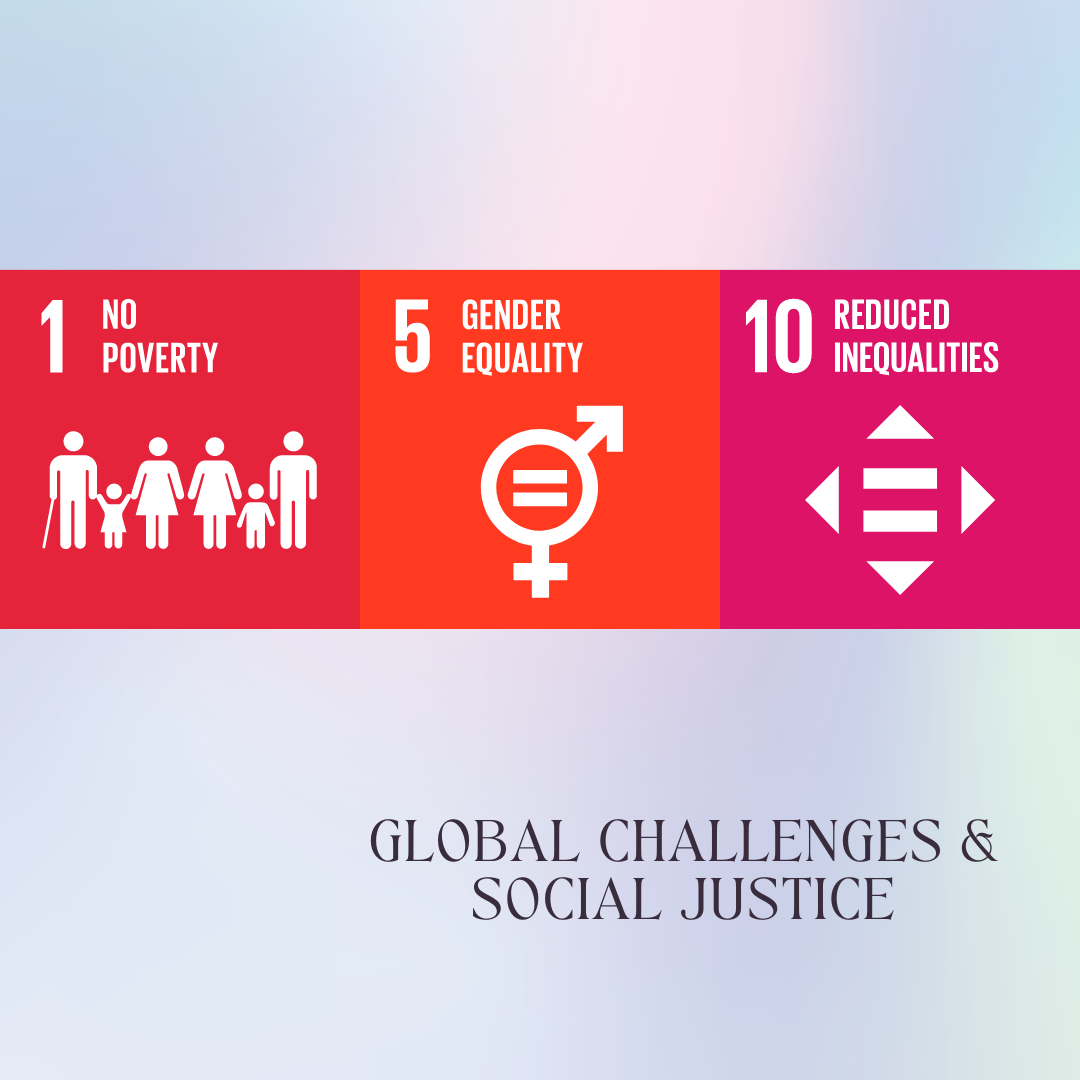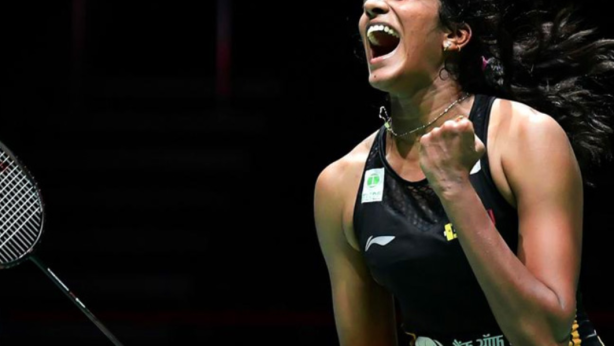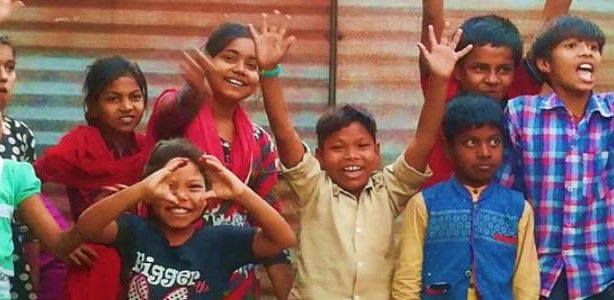The Money Minded: Financial Education for the Times
Dear Reader, it would have been just a few moments ago that you may have bought your favourite book online or maybe just ordered a meal or weekly groceries. How quick the money moves these days, we barely even see the money. The advent of digital financial systems has eased the transactional process to have made it so ingrained that it feels like an extension of bodily functions like breathing and sleeping. Yet, Nearly one in every three women in the world is excluded from the formal financial system not only by infrastructural barriers but also due to a lack of financial literacy and awareness. Globally, women are 7 per cent less likely than men to have basic transactional accounts, and this disparity rises among the poor. Closer to home, India has a literacy rate of nearly 80 per cent. Unfortunately, only 24 per cent of people in the country are financially literate.
Taking it head-on: Global Challenges for Social Justice Program
Aware of the gravity of the issue, TribesforGOOD partnered with Svatah and Kshamata for their ‘Global Challenges for Social Justice Program’ in December 2021. As the name suggests, the program aims to solve the issues that plague us as a civilization one bit at a time. The program covers different themes under which our Young Changewarrior tribe work on live projects and develop solutions. Fieldwork during pandemic times was made seamless because of the virtual fieldwork expertise of TribesforGOOD.The Financial Literacy and Inclusion program aimed to take small steps towards contributing to the fulfilment of SDG 1, 5 and 10.

Our partner Svatah based in Hyderabad, envision empowering people and enhancing their decision-making skills to achieve a life of financial stability for themselves and their families. In a world dominated by finances, Svatah believes everyone’s right to be financially literate.
Mumbai based Kshamata focuses on empowering women and adolescent girls faced with vulnerable and exploitative situations to become productive citizens. They provide complete training, employment and reintegration into society for survivors of Human Trafficking.
Back to the Basics: Understanding Financial inclusion and the nature of the problem
Financial Inclusion is the method of offering banking and financial services to every individual in society without discrimination. Financial literacy is a cardinal component of this. It means possession of knowledge and skills that allow individuals to make informed and effective decisions with their financial resources.
Our Changewarrior Tribe were introduced by TribesForGood as we had students from different cities all over the country. The kinship and team spirit came naturally throughout the program. Students worked on various aspects of the project under the guidance of our facilitators Nanditha Ravindar and Dr Santosh Kumar Reddy Dinne .
Our tribe then chalked out a plan to break down the problem into research questions for primary and secondary methods. The knowledge gathering process led them to realize that something as omnipresent and paramount as money is kept away from our educational curriculum and discussions in the family. No wonder the majority of us lack the basics of managing money, whether it’s savings, investing, buying insurance or emergency funds.

Lack of knowledge regarding all the options available hinders people in converting the right attitude into behaviour. Drawing inspiration from Mohammad Yunnus, our Young Changewarrior Aryaa says, “People are skilled to ‘earn’ money but are not skilled enough when it comes to putting it to the best use. It is everyone’s right to be financially literate.”
Our Tribe created surveys on Google forms with questions centred on elementary concepts and actions surrounding money and management for their primary research. The survey results underlined that -people are either overconfident about their knowledge of financial planning or utterly unaware of it. The laudable government schemes like PM Jan Dhan Yojana (schemes list: Schemes | Department of Financial Services | Ministry of Finance | Government of India) face implementational hurdles.
The primary and secondary research thus helped our students burst some commonly held myths around financial management:
1. Majority of the population knows how to open bank accounts
2. Educated population is financially literate
3. Only the rural population is unaware of financial literacy
4. Schools are efficiently educating students on crucial topics like financial Inclusion
5. The Digital revolution will help connect the population with government policies.
Taking it to the last mile
Our students note that people cannot manage their income due to the disbalance of wants, needs, and savings. Savings and investment are alien concepts for the majority of the population. Financial literacy builds the foundation of an individual’s relationship with money. Apart from theoretical knowledge, the significant population is unaware of budgeting even in schools. Our Tribe conducted workshops with a high element of real-life context to fix that. As E.F Schumacher says, ‘An ounce of practice is generally worth more than a ton of theory.’
Experts often believe that education in terms of finances is a lifelong process, and it is better to start as early as possible. Hence, our students focused on the target cohort of Women aged 14-18 years for their IEC (Information, Education and Communication) Project. After meaningful conversations with girls at Kshamata, our Tribe designed workshops that dealt with the basics of budgeting and MicroFinance resting on easy use budgeting templates in 3 languages (English, Hindi, Marathi)
Our Changewarrior tribe noticed that most people accumulate piles of cash at their homes rather than using them on investments. The value of accrued money never increases. According to Forbes, 60% of Indian millennials live paycheck to paycheck, and 25% population has less than Rs. 25,000 in their savings account.The workshop hand-held the women starting from how they could manage their finances better in terms of household expenditure planning, micro-saving habits, credit and investment options. Chetna Gala Sinha’s Mann Deshi Bank, aimed at the needs of rural women micro-entrepreneurs in India, served as a beacon for our Tribe’s passion project. Head-on surveys indicated that most marginalized communities need micro-credit without collateral.
Financial literates are less susceptible to fraud, and Financial Education would widen the net of economic transactional coverage and ensure the safety and privacy of the human faces behind these transactions.
Looking beyond and within
The Global Challenges for Social Justice program acted as a spark that made our students ponder how to creatively address Financial Inclusion and education in India. Our students are now looking to create an ecosystem of School clubs blessed with institutional backing wherein Teachers and Students can collectively host workshops on budgeting, the golden rule of saving, Micro Finance, Public Speaking, etc. The model can be replicated for community clubs.
Social Media savvy Gen-Z aims to harness the platforms by fine-tuning tutorials on Youtube and making nimble Instagram posts. Websites and Podcasts can serve as strategic information repositories of government schemes, investment options and financial security measures available in regional languages. Apps like Zogo and World of Money and gamified social learning options like http://covid.xrlabs.cloud/que make understanding impactful.
The month-long journey full of learning gave our Tribe a Sense of fulfilment, as Mahika reflects. The joy of helping out and teaching something that we take for granted, but is so significant in our lives is an experience that will stay with us forever. The girls’ reaction at the workshop after being explained the simple way of saving their money, no matter how little the amount, was priceless. Small is indeed beautiful.
The Young Change Warriors Tribe
Abhirath Baiju Ryan International School, Navi Mumbai
Aryaa Mishra Delhi Public School Greater Noida
Nripesh La Martiniere For Boys, Kolkata
Parth Tiwari Welham Boys’ s School, Dehradun
Arav Himatsingka Sanskriti the Gurukul, Guwahati
Divyaansh Verma Delhi Public School R K Puram
Mahika Pai Mizar The International School Bangalore
Siddarth Nair Greenwood High, Bengaluru
Pari Chavan St.Xavier’s College, Mumbai


